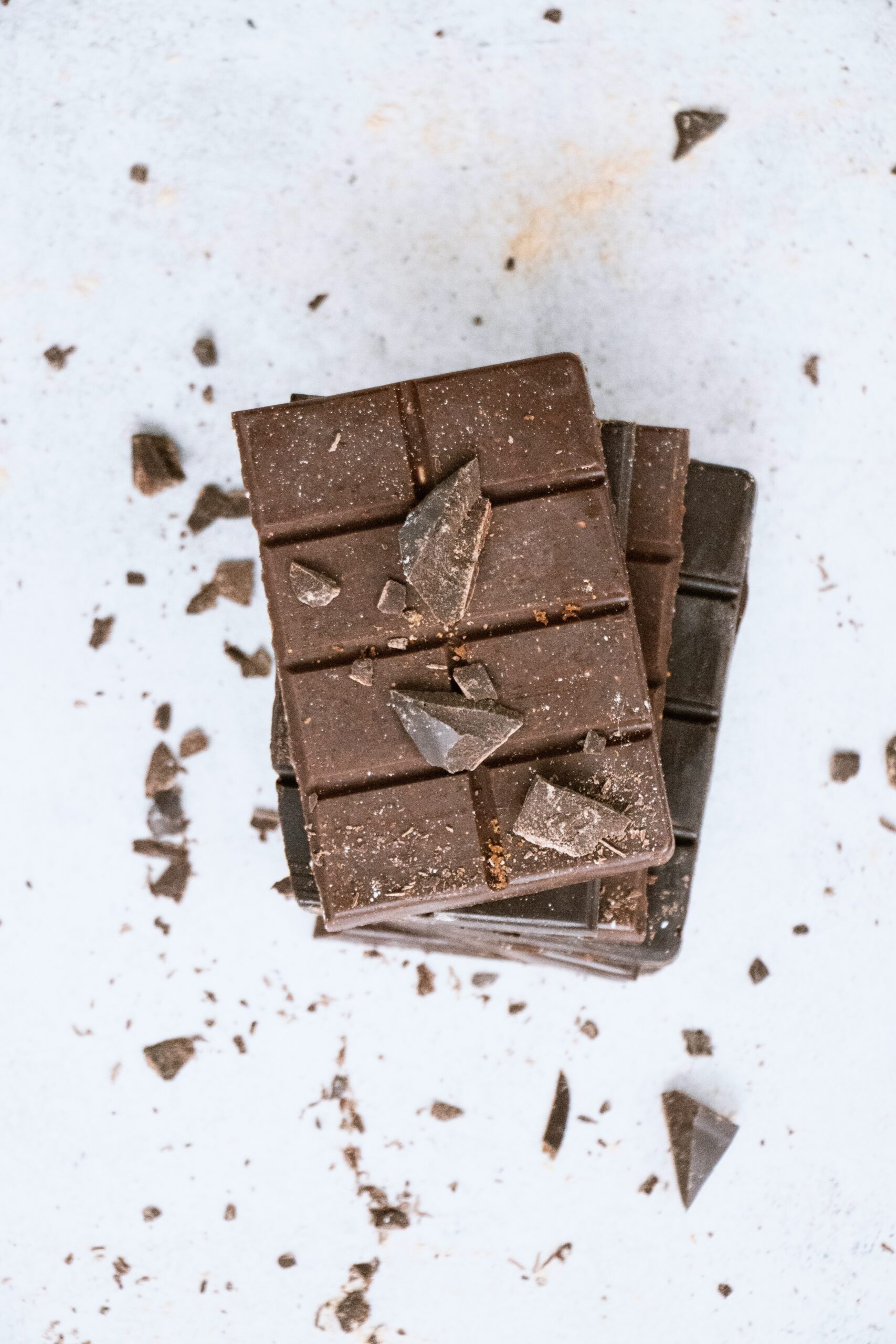Introduction to Belgian Dark Chocolate
Belgian dark chocolate is renowned for its rich flavor, smooth texture, and exquisite craftsmanship, setting it apart from other types of chocolate around the world. Dark chocolate, which typically contains a higher percentage of cocoa solids and cocoa butter while minimizing sugar content, offers a distinctive, complex taste that appeals to connoisseurs and casual consumers alike. What truly elevates Belgian dark chocolate is not just its composition but the meticulous methods employed by skilled chocolatiers who have honed the art of chocolate-making over generations.
The history of chocolate in Belgium dates back to the 17th century, when cocoa, introduced from South America, began to find its place within Belgian society. Over time, Belgian chocolatiers became pioneers in refining techniques and introducing innovative recipes that would establish the country as a preeminent player in the chocolate industry. The legacy of craftsmanship, combined with a commitment to quality, has led to the development of a diverse range of chocolate products, including truffles and pralines, with dark chocolate serving as a foundational element.
Belgian dark chocolate is also distinguished by its ethical sourcing practices, where many producers prioritize sustainable farming methods and fair trade principles. This commitment not only supports cocoa farmers but also enhances the quality of the chocolate itself, creating a better product for consumers. The cultural significance of Belgian dark chocolate extends beyond mere indulgence; it represents a vital aspect of Belgium’s cultural heritage, enjoyed during celebrations and daily life alike. It is celebrated in festivals and recognized through awards, solidifying its status as a symbol of Belgium’s rich culinary tradition.
Overall, Belgian dark chocolate encapsulates the essence of flavor, artistry, and history, providing a unique experience that continues to captivate both chocolate lovers and food enthusiasts around the globe.
The Chocolate-Making Process
The meticulous process of creating Belgian dark chocolate begins with the careful selection of premium cocoa beans. These beans are sourced from various regions around the globe, with particular attention paid to their origin, variety, and cultivation methods. Artisans prioritize high-quality beans, often choosing those with higher cocoa content, as they significantly influence the chocolate’s overall flavor profile. The combination of different cocoa beans can yield unique taste experiences, ranging from fruity undertones to deep, rich notes.
Once the cocoa beans have been selected, they are roasted to enhance their flavor. The roasting process is carefully monitored to ensure optimal development of aromatic compounds. Following roasting, the beans are cracked, and the shells are separated from the nibs, revealing the cacao that will be ground into a chocolate liquor. This liquor, at this stage, contains both cocoa solids and cocoa butter, essential components for further processing.
After grinding the nibs into a smooth paste, chocolatiers add sugar and other ingredients to achieve the desired sweetness and texture. It is during this stage that traditional Belgian recipes come into play, enhancing the complexity of flavors through the use of natural ingredients. In contrast to mass-produced chocolates, the artisans’ commitment to craftsmanship ensures that each batch reflects their dedication to quality.
One of the pivotal steps in chocolate-making is tempering, which involves cooling and reheating the chocolate to stabilize the cocoa butter crystals. This process is crucial for achieving a glossy finish and a satisfying snap when bitten into. Finally, the tempered chocolate is poured into molds, allowing it to set and solidify into its final form. The artistry demonstrated throughout the chocolate-making process is what ultimately contributes to the beloved taste and texture that Belgian dark chocolate is known for.
Flavor Profiles of Belgian Dark Chocolate
Belgian dark chocolate is renowned for its intricate and rich flavor profiles, which can vary widely depending on numerous factors such as the cocoa bean’s origin, the percentage of cocoa solids, and the craftsmanship of the chocolatier. A hallmark of high-quality Belgian dark chocolate is its balance between bitterness and sweetness, creating a taste experience that can be both uplifting and indulgent.
At its core, the bitterness of Belgian dark chocolate is derived from the cocoa solids, which can range from 50% to over 90% cocoa content. Chocolatiers often craft their recipes to achieve a specific level of bitterness that complements the chocolate’s natural sweetness, making the tasting experience more enjoyable and layered. For example, a 70% dark chocolate may present a robust bitterness paired with subtle notes of ripe berries, while a 90% variety could evoke flavors reminiscent of rich espresso and deep, earthy undertones.
The origins of cocoa beans significantly influence the flavor profiles as well. Beans sourced from Venezuela might showcase fruity and floral notes, whereas beans from the African continent may impart robust, earthy flavors with hints of spice. This diversity enables chocolate enthusiasts to discover a wide range of tasting experiences, each uniquely tied to the terroir of the cocoa’s origin. Furthermore, certain chocolatiers elevate the sensory experience by infusing their dark chocolate with spices, herbs, and other ingredients, such as chili, sea salt, or even citrus zest. These additions can enhance the chocolate’s complexity, providing unexpected yet harmonious flavor combinations that captivate the palate.
Through careful selection of ingredients and mastery of technique, the makers of Belgian dark chocolate create a cornucopia of flavors, inviting consumers on a sensory journey that reflects both tradition and innovation. Such attention to detail continues to foster a deep appreciation for Belgian dark chocolate among connoisseurs and casual consumers alike.
Health Benefits of Dark Chocolate
Belgian dark chocolate is renowned not only for its rich flavor and craftsmanship but also for its health benefits. One of the primary advantages of consuming dark chocolate lies in its high concentration of antioxidants, particularly flavonoids, which contribute to overall health. Antioxidants play a significant role in neutralizing free radicals in the body, potentially reducing oxidative stress and lowering the risk of chronic diseases. Studies suggest that the higher the cocoa content, the greater the antioxidant levels, making Belgian dark chocolate an excellent choice for those looking to enhance their antioxidant intake.
Moreover, the heart-health properties of dark chocolate have garnered considerable attention. Research indicates that the consumption of moderate amounts of dark chocolate can improve cardiovascular health by increasing blood flow and lowering blood pressure. The flavonoids found in dark chocolate may also contribute to improved cholesterol levels by raising high-density lipoprotein (HDL) while decreasing low-density lipoprotein (LDL) oxidation. These compound effects underline the significance of choosing high-quality Belgian dark chocolate with a high cocoa content to maximize these cardiovascular benefits.
In addition to physical health benefits, dark chocolate has been linked to potential mood-enhancing effects. The consumption of dark chocolate stimulates the production of endorphins, leading to an improved mood and a sense of pleasure. Furthermore, it contains serotonin, a neurotransmitter known for its anti-depressive properties. This dual action makes Belgian dark chocolate not only a delightful treat but also a potentially beneficial one for mental well-being.
While these health benefits are compelling, moderation is crucial. Overconsumption can negate the positive effects and lead to other health issues. Therefore, it is important for consumers to enjoy Belgian dark chocolate mindfully, focusing on quality rather than quantity to truly reap the health benefits associated with this delectable treat.
Popular Belgian Dark Chocolate Brands
Belgium is synonymous with exquisite chocolate craftsmanship, and its dark chocolate brands stand out for their quality and innovation. Several brands have carved their niche in this competitive industry, showcasing distinct histories and unique offerings, making them beloved by chocolate aficionados worldwide.
One of the most iconic brands is Godiva, established in 1926. Known for its luxury chocolates, Godiva is famed for its rich dark chocolate assortments. Their signature Dark Chocolate Ganache Tart is a must-try, offering a beautifully balanced taste that highlights the depth of cocoa with each bite. Godiva maintains a commitment to quality, sourcing its chocolate from the finest cocoa beans.
Another standout is Belgian Chocolate Company, whose heritage dates back to the 1950s. This brand focuses on artisanal production, handcrafting chocolates in small batches. Their Dark Chocolate Fleur de Sel combines sweet and salty flavors that create an irresistible taste experience. Belgian Chocolate Company prioritizes sustainability, ensuring that its cacao is ethically sourced and supports local farmers.
Neuhaus is a historical brand, founded in 1857, and is credited with inventing the praline. This brand offers a diverse selection of dark chocolate pralines that feature varied fillings, such as ganache and marzipan, encased in high-quality dark chocolate. A recommended delight would be their signature Noir Praliné, which perfectly illustrates the balance of intense dark chocolate and the subtle sweetness of the filling.
Finally, there’s Leonidas, known for its wide array of affordable yet exceptional chocolates. This brand emphasizes freshness and quality, offering delightful dark chocolate assortments and pralines. Their dark chocolate-covered fruits, especially orange slices, provide a refreshing twist that chocolate lovers appreciate.
These brands exemplify the rich tradition of Belgian dark chocolate, showcasing craftsmanship that captivates the palate and defines the country’s reputation as a leader in chocolate production.
Pairing Belgian Dark Chocolate with Beverages
Pairing beverages with Belgian dark chocolate elevates the tasting experience, harmonizing flavors for a more profound enjoyment. When considering the pairing principles, it is essential to match the intensity and flavor profiles of both the chocolate and the beverage. Belgian dark chocolate, known for its rich cocoa notes and varying degrees of bitterness, can be complemented by a range of drinks, including wines, coffees, and teas.
One classic pairing is Belgian dark chocolate with red wine, particularly full-bodied varieties such as Cabernet Sauvignon or Merlot. The inherent fruit and tannin notes of these wines counterbalance the richness of the chocolate, enhancing its depth. Alternately, a sweeter Port wine can seamlessly accompany dark chocolate with higher cocoa content, accentuating its subtle sweetness without overpowering the palate.
Coffee is another ideal companion for dark chocolate, as the roasted flavors of the coffee can mirror the chocolate’s taste. Bold espresso or rich French roast can bring out the drier notes in the chocolate, creating a delightful balance. For those who prefer a milder approach, a smooth cold brew or an aromatic filter coffee can provide a gentle contrast that allows the chocolate’s flavors to shine.
Tea enthusiasts may find a particularly satisfying pairing in the combination of dark chocolate and herbal or spiced teas. A robust black tea, such as Assam or Darjeeling, can complement the chocolate’s bitter notes, while chai with its aromatic spices brings a warm richness that enhances the overall experience. For a lighter option, green teas or floral teas can offer a nuanced freshness that unravels the chocolate’s complexities.
Ultimately, exploring different beverage pairings with Belgian dark chocolate opens up a world of flavors. The key is to experiment and find the right combinations that resonate with personal taste preferences while honoring the craftsmanship of both the chocolate and the drinks involved.
Cooking and Baking with Belgian Dark Chocolate
Belgian dark chocolate is renowned for its rich flavor and smooth texture, making it a favorite ingredient in both cooking and baking. When utilizing this exquisite chocolate, it is vital to preserve its unique qualities to elevate your culinary creations. One of the simplest ways to incorporate Belgian dark chocolate into desserts is by using it in classic recipes such as mousses, brownies, and ganaches. To create a dark chocolate mousse, melt the chocolate gently over a double boiler to retain its silky consistency, before folding it into whipped cream for a light yet indulgent dessert.
In addition to sweet treats, Belgian dark chocolate can be skillfully integrated into savory dishes. For example, a touch of finely grated dark chocolate can enhance the flavor of a chili or a mole sauce. The bitterness of the chocolate complements the spices, adding depth to the dish without overwhelming other flavors. It is essential to use high-quality Belgian dark chocolate; a 70% cocoa content variety works best for this purpose.
When baking with Belgian dark chocolate, it is crucial to consider the tempering process if you wish to create chocolate confections such as truffles or chocolate-covered fruits. Properly tempered chocolate boasts a glossy sheen and a satisfying snap. Begin by melting the chocolate, then allow it to cool to around 80°F before heating it again to 88-90°F. This technique stabilizes the cocoa butter crystals, ensuring that your creations have an appealing appearance and texture.
Ultimately, the key to mastering the use of Belgian dark chocolate in your dishes lies in understanding its strengths and working with them. Whether enhancing a dessert or adding depth to a savory dish, the rich flavors of Belgian dark chocolate can elevate your cooking and baking to new heights, offering an unforgettable experience for those who indulge.
Sustainability in the Belgian Chocolate Industry
The Belgian chocolate industry, renowned for its high-quality products, is progressively embracing sustainability and ethical practices. As the demand for chocolate rises, so does the importance of adopting methods that ensure environmental stewardship and social equity. One critical aspect is the sourcing of cocoa beans, which needs to be both responsible and transparent. The industry has made strides in establishing partnerships with cocoa farmers that prioritize fair trade practices. By guaranteeing a fair price for their cocoa, Belgian chocolatiers play a significant role in improving the livelihoods of farmers, promoting better working conditions, and empowering communities.
Many Belgian chocolate brands have embraced certification programs such as Fair Trade and Rainforest Alliance, which advocate for sustainable farming practices. These certifications ensure that the cocoa is harvested under conditions that protect the environment and boost local economies. As a result, the chocolate produced under these schemes not only meets the expectations of quality but also aligns with the growing consumer demand for ethically made products. Consumers today are increasingly aware of the environmental impact of their purchases, making it imperative for chocolate producers to uphold sustainability.
Moreover, the Belgian chocolate industry is also focusing on reducing its carbon footprint through innovative production practices. Many chocolatiers are implementing energy-efficient processes and sourcing ingredients locally, thereby minimizing transportation emissions. This eco-conscious approach is not only beneficial for the environment but also supports local economies. As consumers become more educated about the origins of their chocolate, they can make informed choices that prioritize sustainability. By choosing brands that advocate for ethical practices, consumers contribute to a healthier planet and promote a chocolate industry that values both flavor and craftsmanship while respecting social and environmental responsibilities.
Conclusion: The Lasting Legacy of Belgian Dark Chocolate
Belgian dark chocolate embodies a rich legacy that transcends mere confections, appealing to enthusiasts and connoisseurs around the world. Renowned for its exceptional quality and complex flavors, Belgian dark chocolate has secured its status as a symbol of culinary artistry. The dedication of master chocolatiers to sourcing the finest cocoa beans and employing time-honored techniques plays a crucial role in maintaining its esteemed reputation.
This commitment to craftsmanship is indispensable to the allure of Belgian dark chocolate. Each piece encapsulates not only luxury and indulgence but also a deep-rooted cultural heritage that dates back centuries. As a result, it has become an integral part of Belgium’s national identity, contributing to the country’s prominence on the world stage of gourmet treats. Belgian chocolatiers have honed their skills through generations, ensuring that the methods used today are a testament to the craftsmanship that defines this exquisite chocolate.
Furthermore, the ongoing popularity of Belgian dark chocolate is a reflection of evolving consumer preferences, which increasingly lean towards high-quality, artisanal products. With a plethora of flavor profiles and innovative combinations emerging, there is a continually expanding realm for exploration. Whether enjoyed on its own, paired with wine, or featured in gourmet culinary creations, Belgian dark chocolate offers a unique experience that captivates the senses.
In conclusion, the legacy of Belgian dark chocolate is marked by its unparalleled quality, cultural significance, and enduring appeal. As readers delve deeper into the world of this exquisite treat, they are encouraged to share their own experiences and discoveries. This journey through the intricacies of flavor and craftsmanship not only enriches personal enjoyment but also honors the rich heritage that Belgian dark chocolate represents.


